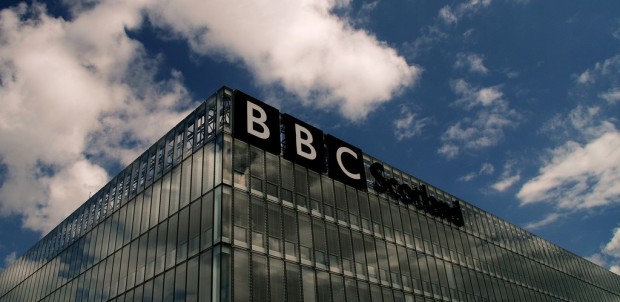Cultural Identity, Sporting Achievement, and selling Scotland to the World

Reports have been swirling lately that the Department for Culture, Media, and Sport is for the chop following the Olympic Games. This, perhaps, is understandable given that the department has been the focus of much of the attention of the Leveson Inquiry. That there are problems in that department is undeniable, with Ministers and subordinates apparently working at cross-purposes. However, while there are undoubtable problems within this department, that does not mean that the various functions of the department are incompatible. I would argue that quite the contrary is true.
In fact, I’m mildly jealous of the DCMS. Not a sort of personal jealousy, but rather that England has a department which co-ordinates these inextricably-linked policy areas in a manner which simply doesn’t happen in Scotland. In 2003, Jack McConnell made Frank McAveety Scotland’s first cabinet minister for Culture, Tourism, and Sport – a role in which he was succeeded by Patricia Ferguson. During that period, the minister led the way in bringing the MTV Music Awards to Edinburgh, successfully bidding for the 2014 Commonwealth Games, and the establishment of the Culture Commission which ultimately poposed the establishment of Creative Scotland. However following the 2007 election Alex Salmond scrapped the post and divvied up its responsibilities across a number of ministerial posts:
- Linda Fabiani was created Minister for Europe, External Affairs, and Culture – outside of cabinet, working beneath the First Minister. Following the first re-shuffle Mike Russell succeeded her and became Minister for Culture, External Affairs, and the Constitution. Fiona Hyslop was demoted from the cabinet, swapping jobs with Russell, to become Minister for Culture and External Affairs. Following the 2011 election she retained her responsibilities but the post was elevated to Cabinet Secretary level.
- Jim Mather was given responsibility for tourism as Minister for Enterprise, Energy, and Tourism – under the Finance Secretary. He was succeeded in this post by Fergus Ewing.
- Shona Robison gained responsibility for Sport as Minister for Public Health – under the Health Secretary. Following the 2011 election she retained responsibility for sport as Minister for Commonwealth Games and Sport – again under the Cabinet Secretary for Health.
The logic in this division has always escaped me. Major Events strategy is the responsibility of the Culture Secretary, EventScotland is accountable to the Enterprise Minister. With the exception of the second Homecoming Scotland (largely a tourist focused venture, although why we’re hosting a second when the first was such an abject failure is beyond this writer), sporting events dominate the coming years. The Commonwealth Games are to be held in Glasgow in 2014 and, following that, the Ryder Cup at Gleneagles. In addition to the ministerial dis-joinder, the the administrative organisation of responsibilities in the Scottish Government is even more erratic – the broader question about which requires greater consideration than I can give it on my meagre blog.
“Housing and Regeneration, Culture and Commonwealth Games” is within the Directorate for Governance & Community. Oddly enough despite being in the name, Culture isn’t actually within that division at all! Arts & Culture fall within the Directorate for Strategy & External Affairs. Tourism is within the Directorate for Enterprise, Environment & Digital – which at least vaguely ties in with the responsibilities of the Enterprise Minister.
Anecdotally, I recall an occasion in which the researcher to the MSP for Greenock, who wanted to submit a series of written questions relating to the Tall Ships Races in his constituency but didn’t know to whom the questions should be addressed. Sailing is a sport (therefore the responsibility for the Public Health Minister), I reckoned, but the event is supported by EventScotland (Enterprise Minister), but one of the questions relates to Major Events Strategy (Culture Minister). Stumped, I contacted the Cabinet Directorate who didn’t, initially, know who was responsible either! Eventually I was advised to separate the questions and submit them to the most appropriate minister for each. This certainly does little to instil confidence that government decision-making in such matters is coherent or co-ordinated.
Certainly, I find it astonishing that the minister for the Commonwealth Games and Sport works beneath the Health Secretary, rather than the Culture Secretary (who has no supporting ministers). It also affirms what many within the upper-echelons of Scottish Sport suspect, which is that the Scottish Government is more concerned with sport being a tool for tackling Scotland’s obesity problem than with the development of elite sport, which is inextricably linked to cultural identity and Major Events Strategy.
The job of the Tourism Minister is principally to sell Scotland to the world. For a small country like Scotland cultural identity is crucial to that job. I was lucky enough to attend the Olympics in Sydney in 2000, and since then I have never been in any doubt about the contribution that sport can play, too, in developing and promoting a nation’s cultural identity. London is proving that again. If one asks why we seek to promote culture and sport the connection between cultural identity, sporting achievement, and national identity becomes obvious – to help sell our nation to the world.
A single cabinet minister for Culture, Tourism, and Sport could better perform those three roles together than three ministers working to different ends. When one considers that cultural identity is as crucial as sporting achievement to selling Scotland abroad,the merits of a single Minister for Culture, Tourism, and Sport become obvious.
By way of background to this post, I previously worked on culture policy in the Scottish Parliament. In addition, my father is a former Olympian and is presently the President of his sport’s governing body – I grew up in a house dominated by the politics of sport. The only thing that qualifies me to write about tourism is that I like going on holiday, I suppose.

